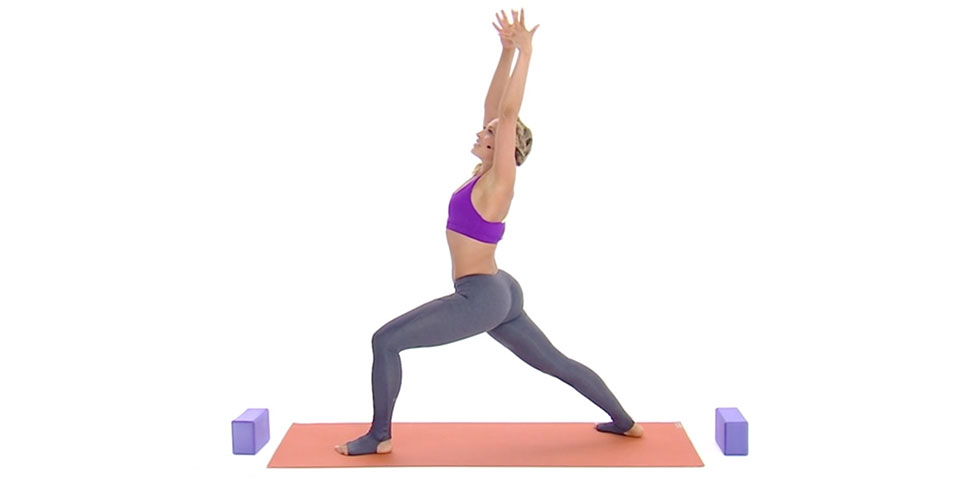
There are many types of ab yoga poses. There are several types of ab poses that you can choose from: the transversus abdominis (rectus abdominis), and the oblique. The rectus abdominis is the best option if you are looking to target specific areas of your abdominal region. These are the most popular ab yoga poses. Learn how to perform each of these poses. This guide also includes information about inversions.
Inversions
Inversions can be difficult, but they are possible safely and without injury. Ab yoga is a great way for you to improve your core strength and avoid injury. Props such as blocks and bolsters can help you improve balance and strength. These tools can help you create a hollower shape by lifting your hips. These can be helpful in maintaining balance during inversions.
Boat pose
Boat Pose, an ab yoga pose, is something you might have wondered about. To perform this seated core exercise, bend your knees to lift your torso. While your knees should be parallel to the floor, you should be capable of bending them easily. Your hip flexors will be a focus of this ab yoga exercise.
Side plank pose

Side plank poses are great for strengthening your wrists and challenging your core. This pose puts pressure on the wrists, feet and core. This pose can be used to strengthen the wrists. It also helps develop balance and flexibility. It is possible to do side planks in abyoga with a straight arm. This is however more difficult.
Regular cat pose
Beginners and advanced students alike can enjoy the classic cat pose in ab Yoga. For more stability and improved spine motion, it is possible to do this seated. Be sure to align your limbs before you start. Ask a friend/trainer to show you the pose if you aren’t sure what you should do.
Tree pose
There are two versions of Tree pose in ab yoga. The standing version requires the practitioner to maintain a neutral balance while the reclining version involves lying on the floor. When standing, practitioners need to ensure that the foot remains flat. The weight should be evenly distributed across the foot to prevent the foot from locking its knee joint. Practitioners should strengthen their leg by engaging the muscles of the feet, ankles and legs.
Activating your core system
For your overall health, activating your core is essential. Your core system is vital for lifting and movement. If you don't have them, your form can be distorted and you might sustain an injury. You can activate your core system with a few simple exercises. Below, we've listed a few of them. This will ensure that your workouts are more efficient, and safer. The key to core activation is to engage your core muscles without contracting them.
Activating your limbs

Abyoga activates your limbs to balance and strengthen your core. You will be able perform everyday activities with your core strong. The ab yoga poses work to strengthen your core and reduce the strain on your back and spine. They improve balance and your posture. Activating your limbs in ab yoga can help you achieve your goal of six-pack abs and help you get there.
Activating your spine
Ab yoga is a wonderful way to activate the spine and relieve tension and back pain. This technique targets the psoas, which is connected to the legs of your breathing diaphragm. To stabilize your lower back and prevent it from dropping forward, engage the core. The deep core line decompresses the spine joints and includes the part of the psoas.
FAQ
Why is mental health important?
Mental health is essential for everyone. Mental health is vital for anyone. A healthy mind is vital.
If we are not feeling well mentally, our bodies will start to show signs of stress. This can cause physical problems such headaches, stomachaches, backaches, or other symptoms. It is important to take care for our bodies and minds in order to maintain a healthy balance.
Why is mental health important?
Work, play and learn. Love. Mental health is about our overall well-being. When we refer to mental health, we mean the physical, psychological and spiritual factors that have an impact on us every day. There are many options for taking care of yourself mentally and physically as well as emotionally, spiritually, financially, and socially. It doesn't take all of the above at once. Just start somewhere.
Understanding where your mental health stands now is the first step toward improving it. Take this quiz to find out if you're doing enough to support your mental health. You might consider changing your lifestyle if you have a low score.
Suppose you scored high, congratulations! Here are some things you can do that will help improve and maintain your mental health.
-
Get enough rest. You can keep your brain sharp, energized and alert by getting enough sleep. Get at least 7 hours of sleep every night according to the American Academy of Pediatrics.
-
Exercise Regularly. Exercise releases endorphins, which make you happier and less likely stress. Five times per week, aim for 30 minutes of exercise.
What is positive psychology and why is it important?
Positive psychology focuses on what makes us feel better about ourselves, such as happiness, optimism, gratitude, hope, love, kindness, compassion, forgiveness, courage, humility, curiosity, empathy, spirituality, and meaning. Positive psychology helps individuals feel happier, healthier, wiser and more fulfilled through self-improvement.
There are two kinds of positive psychology: trait and process. Trait positive psychology examines how people behave naturally. The process of positive psychology studies how to use specific strategies to achieve certain goals.
What should I do if I am experiencing mental health issues?
It is crucial to seek out help if you are struggling with any mental health issues. It is possible that you have been subject to abuse or trauma in the past. It is possible that you have had to deal with trauma in your past.
An eating disorder, addiction, and other mental illnesses could also be a problem. These disorders can have a devastating effect on your life.
It is best to not try to solve them all by yourself. Talk to someone who is familiar with the subject. Professional therapists can help you overcome these obstacles.
What can I do for my mental well-being?
Everyone needs mental health, especially when we feel stressed at work, school, home, or family. The best way to improve your mental health is to exercise regularly, eat healthy food, sleep well, and spend quality time with loved ones. Exercise makes us feel happier and releases endorphins. Good nutrition is essential for a healthy body. Being well rested gives you energy for the day. Spending time with our loved ones is a great way to improve our relationships, and it reduces stress.
How does mental well-being affect daily life?
At some point in our lives, everyone is susceptible to mental illness. The main difference between those who suffer from mental illness and others is that they don't seek help for it. Talk to someone if something feels wrong. There are many ways to deal with depression, anxiety, stress, etc., such as therapy, medication, exercise, diet, meditation, and other methods.
Statistics
- Neuropsychiatric diseases are the leading cause of death and disability in the U.S., accounting for 18.7 percent of all years of potential lifespan loss and premature mortality.
- Similarly, while there is some agreement about the boundaries of typical mental disorders 2, there is likely less agreement about those for positive mental health. (ncbi.nlm.nih.gov)
- In any given year, an estimated 18.1% (43.6 million) of U.S. adults ages 18 years or older suffered from any mental illness, and 4.2% (9.8 million) (healthypeople.gov)
- More than 40 million adults in the United States have an anxiety disorder, but less than 37% of people seek mental health treatment for their symptoms. (talkspace.com)
- According to the National Alliance of Mental Illness (NAMI), one in five Americans experiences mental health issues which translates to more than 40 million adults a year. (doctorondemand.com)
External Links
How To
Why Is Mental Health Essential, And What Steps Can You Make To Improve It
Mental health is the condition of your mind and emotional well being. It influences how you think, feel, act, relate, relate, sleep and eat.
Mental health is an important topic for everyone. Mental health is often associated with depression. Depression is a serious illness that affects millions each year.
The term clinical depression is used to describe depression. It requires treatment by a physician. There are many forms of depression.
The National Institute of Mental Health (NIMH) defines depression as "a common mood disorder characterized by a depressed mood most of the day nearly every day, loss of interest or pleasure in almost all activities, feelings of guilt or low self-worth, disturbed sleep or appetite, poor concentration, and thoughts of death or suicide."
There are many ways people can feel depressed. People may feel sad, helpless, irritable and anxious. They might also feel worthless, guilt, worthless or tired. Others may feel depressed, anxious, restless, agitated or fearful. Others may not feel anything at all.
Depression can be treated. There are many treatments for depression, including medication, psychotherapy as well as diet and lifestyle modifications that can help. If depression isn't treated, it can cause serious problems at home and school as well as in your relationships.
Depression is more common among women than men, although men and boys are affected too. Depression is the number one cause of disability in the world for women and men between the ages of 15 and 44.